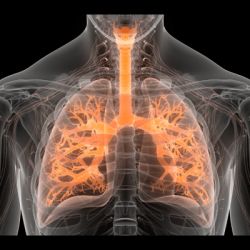Researchers at Brigham and Women's Hospital's Artificial Intelligence in Medicine Program (AIM) Program and the Massachusetts General Hospital's Cardiovascular Imaging Research Center (CIRC) have developed a deep learning system that automatically measures coronary artery calcium from CT scans. The system can help physicans and patients make better decisions regarding cardiovascular prevention.
Coronary artery calcification is an important predictor of cardiovascular events such as a heart attack. Coronary calcium can be detected by CT scans. However, quanitifying the amount of plaque requires the expertise of a radiologist. It also requires time and specialised equipment. This new system could solve this problem. The team from AIM and CIRC have already validated it using data from over 20,000 individuals.
The algorithm can identify high-risk individuals in an automated manner by accurately predicting cardiovascular events through scoring conary calcium. The system is currently only for research purposes but is freely available for anyone to use.
The resarch team trained the deep learning system using data from the Framingham Heart Study. All study particpants received dedicated calcium scoring CT scans, which were manually scored by human readers. This data was used to train the deep learning system, which was then applied to three additonal study cohorts - the National Lung Screen Trial (NLST), the Prospective Multicenter Imaging Study for Evaluation of Chest Pain (PROMISE) trial and the Rule Out Mycoardial Infarction using Computer Assisted Tomography (ROMICAT-II) trial. The results have been promising. Since these are all big clinical studies, the findings strengthen the generalisability of these results.
The automated scores from this new system correlate with the manual calcium scores from human readers. The scores also predicted who would go on to have a major adverse cardiovascular event. This could be a very important tool to help clinicians make informed and personalised decisions. If implemented, this system could automatically identify patients at high-risk.
Source: Brigham Health and Women's Hospital
Image Credit: iStock



























